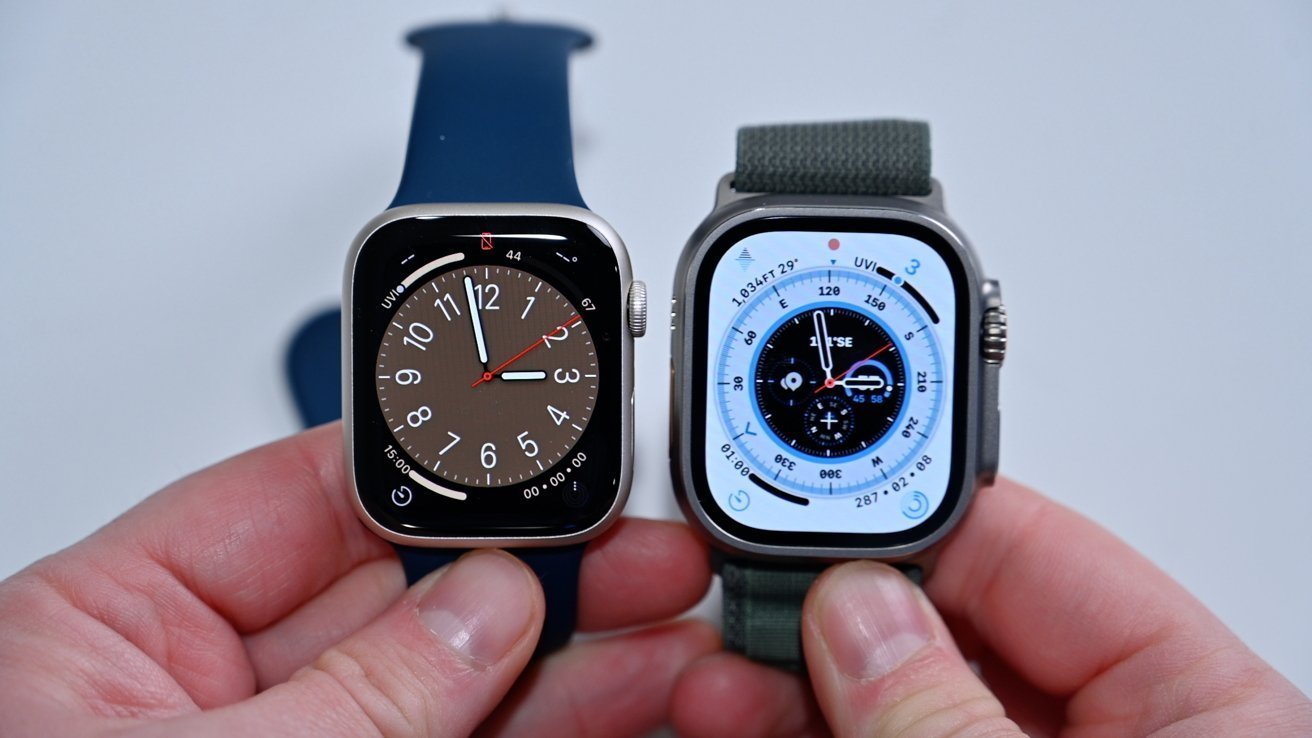Apple has now argued before a US appeals court that the ITC's US ban on Apple Watches with the pulse oximetry feature should be overturned.
The company has been involved in a patent dispute with medical technology company Masimo for over a year. The case, which doesn't affect previous Apple Watch models, claimed that Apple copied patented Masimo technology in its implementation of the blood oxygen detection feature in Apple's two most recent models.
Apple's appeal
The US Court of Appeals has finally returned to the case between Apple and Masimo to hear Apple's appeal of the ITC ruling as of April 5th. The company told the court that Masimo's victory with the ITC was based on two flawed claims: the validity of Masimo's affected patents, and that Masimo claimed it was making competing products.
At the hearing, Apple told the court that Masimo's patents on the blood-oxygen measuring technology were invalid. Attorneys for Apple also said that it has evidence Masimo's claims of plans for a competing product at the time of original case in 2021 were "purely hypothetical," with Masimo not having invested any funds into making such a product.
"The International Trade Commission exceeded its statutory authority by issuing an injunction in a case where the requisite domestic industry' was non-existent," Apple said in its court filing.
The ITC decision was also flawed by based on "substantively defective" patent judgements, Apple said, some of which have since been invalidated. Masimo updated its original pulse oximetry patents "six days after Watch's launch," which were "manifestly written to ensnare Apple's new Watch," Apple has claimed.
Masimo ultimately had to admit that its claims of developing its own smartwatch were based on CAD drawings. No such item existed at the time of the case, and thus the ITC overstepped its authority.
Masimo will have an opportunity to rebut Apple's claims in the appeals filing. Apple could win relief on any one of the various charges against the original ITC ruling, but the fact that Masimo had no competing product might be Apple's strongest argument.
The case so far
The US branch of the International Trade Commission ruled in favor of Masimo at the beginning of 2023, but Apple launched a federal lawsuit to prevent a ban. A mistrial occurred when jurors could not reach a unanimous verdict.
Apple appealed to the White House to overturn the ITC ban, but ultimately the administration chose not to do so. Just days before Christmas, Apple halted sales of the two latest models in the US to comply with the ITC decision.
Three days after the ban began, Apple convinced the US Court of Appeals to temporarily put the ITC ban on hold. As the court case continued, the US Customs and Border Protection made a determination that simply disabling the disputed feature would be sufficient to nullify the ITC's ban.
In mid-January, with the court's temporary hold on the ban expiring, Apple disabled the pulse oximetry feature on the latest Apple Watch models. This allowed sales in the US to continue.
By disabling the feature via a software update, Apple could turn the feature back on when and if it gets a favorable court ruling. Masimo's patent on the disputed technology expires in August of 2028.
 Charles Martin
Charles Martin







-m.jpg)






 Christine McKee
Christine McKee
 Marko Zivkovic
Marko Zivkovic
 Mike Wuerthele
Mike Wuerthele

 Amber Neely
Amber Neely
 Sponsored Content
Sponsored Content
 Wesley Hilliard
Wesley Hilliard








8 Comments
The big question is whether Masimo ever intended to make a wearable or was developing tech it could use for patent licensing purposes. Apple should just buy Massimo and be done with it
Usually we don't see a company with a shipping product that is also being a patent troll. Can we have this go back to court so the patents can be invalidated? It was a hung jury by one vote last time.
Apple will never buy Masimo. Its market cap is $7.5 billion and the largest acquisition in Apple history was Beats, at $3 billion -- and THAT deal made a lot of sense for many reasons. Masimo makes no sense for Apple. One part of its business is hospital grade monitoring devices, especially pulse oximetry--and the other part, bizarrely, is high end audo equipment. It paid over a billion dollars in 2022 for Sound United, an umbrella audio company that bought up higher end brands like Bowers & Wilkerson, Denon, Marantz, Classé and others. Sound United had established sales channels for major retailers like Best Buy, which Massimo wanted to leverage for its consumer watch. Seems like a helluva lot to pay for sales channels, though, and investors sent Masimo stock down by over 30% on this news and the stock has never recovered.